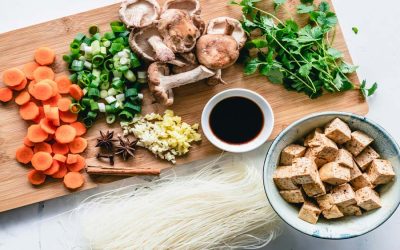Iron is an essential mineral that is crucial in maintaining our overall health and well-being. From transporting oxygen in the blood to supporting energy production and immune function, iron is a cornerstone of our physiological processes. However, many individuals find themselves grappling with iron deficiency, leading to a range of health issues. In this article, we’ll explore the importance of iron in the body, delve into reasons for low iron levels, and discuss the potential benefits of using ionic iron supplements to support optimal iron levels.
The Importance of Iron
Iron is a vital component of haemoglobin, the protein responsible for transporting oxygen from the lungs to all tissues in the body. This oxygen is essential for cellular respiration, which produces energy for our cells. Without adequate iron, our cells may not receive the oxygen they need, leading to fatigue, weakness, and a compromised immune system.
Iron is also involved in the production of collagen, a protein that supports the health of our skin, hair, and nails. It also plays a crucial role in neurotransmitter synthesis, helping regulate mood, cognitive function, and overall mental well-being. Furthermore, iron contributes to the efficient functioning of the immune system, aiding in the body’s defence against infections and diseases.
Common Causes of Iron Deficiency
Despite its significance, iron deficiency remains a prevalent health issue, affecting people of all ages and backgrounds. According to the World Health Organisation (WHO), iron deficiency affects around 2 billion people worldwide, corresponding to 25% of the global population. Several factors contribute to low iron levels, and understanding these can be pivotal in addressing the root causes. Some common reasons for iron deficiency include:
Inadequate Dietary Intake: A diet lacking in iron-rich foods, such as red meats, legumes, and dark leafy greens, can contribute to insufficient iron levels.
Poor Absorption: Certain conditions, such as celiac disease or inflammatory bowel disorders, can hinder iron absorption from the gastrointestinal tract, even if the diet is rich in iron.
Increased Iron Requirements: Pregnant women, growing children, and individuals engaged in intense physical activity may have increased iron needs, making them more susceptible to deficiency.
Blood Loss: Chronic blood loss can deplete iron stores over time, whether through heavy menstrual periods or gastrointestinal bleeding.
Harnessing Ionic Iron Supplements for Optimal Levels
As interest in natural health alternatives continues to grow, individuals are exploring various supplements to address nutritional deficiencies, and ionic iron supplements are gaining attention. Ionic iron refers to iron that is in its most bioavailable form, meaning it can be readily absorbed and utilised by the body.
Research suggests that ionic iron supplements offer advantages over traditional iron supplements in terms of absorption and tolerability. In a study published in the “Journal of Clinical Pharmacology,” researchers found that ionic iron supplements demonstrated higher absorption rates compared to conventional iron supplements, leading to quicker increases in iron levels in the blood.
Furthermore, ionic iron supplements may be gentler on the digestive system, minimising common side effects associated with traditional iron supplements, such as constipation and nausea. This makes ionic iron an appealing option for those struggling with gastrointestinal issues or finding it challenging to tolerate conventional iron supplements.
It’s important to note that while ionic iron supplements show promise, individual responses may vary. Consulting with a healthcare professional is crucial before incorporating any new supplement into one’s routine, especially for those with pre-existing health conditions or taking medications.
Natural Approaches to Enhance Iron Absorption
In addition to considering ionic iron supplements, there are natural approaches that can enhance iron absorption and support overall iron levels in the body:
Vitamin C-Rich Foods: Consuming foods high in vitamin C, such as citrus fruits, strawberries, and bell peppers, can enhance the absorption of non-heme iron (the type of iron found in plant-based foods).
Avoiding Iron Antagonists: Certain substances, such as tannins in tea and coffee and calcium in dairy products, can inhibit iron absorption. Consuming these substances separately from iron-rich meals can help mitigate their impact.
Conclusion
In natural health, recognising the importance of iron and addressing deficiencies through thoughtful strategies is a key component of overall well-being. From maintaining energy levels to supporting immune function and cognitive health, iron is an indispensable nutrient.
While ionic iron supplements present a promising avenue for optimising iron levels, they should be viewed as part of a holistic approach that includes a well-balanced diet, lifestyle modifications, and consideration of individual health factors. By combining these elements, individuals can take proactive steps towards ensuring their bodies receive the iron they need to thrive naturally.





